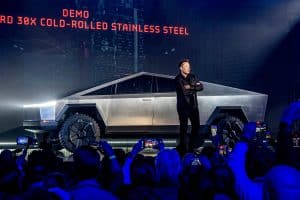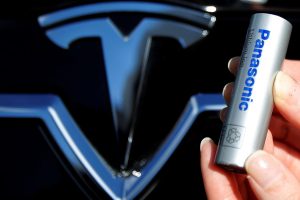- 🚗 Toyota is recalling over 280,000 vehicles in the U.S. due to unexpected movement issues.
- 🔧 Dealers will deploy a software update for free to fix the electronic control unit’s transmission control.
- 📅 NHTSA plans to mail owner letters about the recall on April 7, 2024.
- ⚠️ Some in the EV community criticize the use of “recall” for issues that can be fixed with software updates.
- 🚘 Toyota has been criticized for focusing too much on gas vehicle production and underplaying battery-electric tech.
- 🛢️ Toyota’s chairperson emphasizes the role of internal combustion engines in achieving carbon neutrality.
In recent news, Toyota has announced a recall affecting over 280,000 vehicles in the U.S. This recall stems from concerns regarding unexpected movement issues, raising questions about safety and vehicle technology. Let’s delve deeper into this development and explore various aspects surrounding it.
Understanding the Recall
Toyota’s decision to recall such a significant number of vehicles underscores the importance of prioritizing consumer safety. The unexpected movement issue poses potential risks to drivers, passengers, and pedestrians, necessitating immediate action.
Free Software Update Solution
To address the problem, Toyota dealers will deploy a software update free of charge. This solution targets the electronic control unit’s transmission control, aiming to rectify the underlying issue effectively. This approach not only demonstrates Toyota’s commitment to customer satisfaction but also highlights the role of technology in resolving automotive issues.
NHTSA’s Involvement
The National Highway Traffic Safety Administration (NHTSA) plays a crucial role in overseeing vehicle safety standards and recalls. With plans to mail owner letters about the recall on April 7, 2024, the NHTSA ensures that affected vehicle owners are promptly informed and provided with necessary instructions.
Criticism from the EV Community
However, despite the proactive measures taken by Toyota, some within the electric vehicle (EV) community have expressed criticism. The term “recall” is questioned when issues can be resolved through software updates, prompting discussions about terminology and the perception of vehicle recalls.
Toyota’s Stance on EVs
This recall also reignites debates surrounding Toyota’s stance on electric vehicles. The company has faced criticism for prioritizing gas vehicle production over battery-electric technology. Critics argue that this approach may hinder progress towards sustainable transportation solutions, especially amidst growing concerns about climate change.
Insights from Toyota’s Chairperson
Toyota’s chairperson and former CEO, Akio Toyoda, has emphasized the importance of internal combustion engines in achieving carbon neutrality. While acknowledging the significance of electric vehicles, Toyoda advocates for a balanced approach that considers various technologies and their roles in reducing carbon emissions.
Conclusion: Prioritizing Safety and Innovation
In conclusion, Toyota’s vehicle recall highlights the intersection of safety, technology, and environmental considerations in the automotive industry. While the recall addresses immediate safety concerns, it also prompts broader discussions about the future of transportation and the role of different technologies in shaping it.





